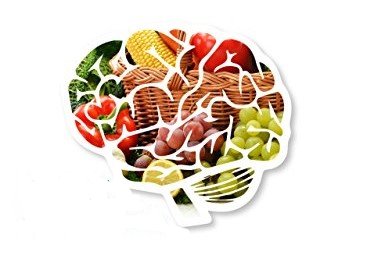
What happens in your brain when you taste food?
Further to the speech of the neuroscientist Camilla Arndal Andersen during TED@DuPont in September 2019, we decided to study and present one of the most necessary needs and at the same time most important pleasures of humans: food. How does the food we eat affect our brain and body? Is it just a human need, a source of satisfaction or maybe it includes something more complicated and fascinating?
There is one thing which is widely known and universally admissible: food is one of the most important pleasures of a person. It’s not just a necessity, a way to ensure his survival. It’s actually way more than that. This can be easily understood if observing its role on each person’s everyday life and his whole existence as well. Food is everywhere, in every moment of the human kind. It is included in his emotions and memories, connected to his happiness and sadness. It creates, but also accompanies his feelings. When we are happy, we want to eat, when we feel sad, angry, tired we need food. But, how is this even possible? How can a meal determine our thought, mood, actions?
Brain is one of the most complex organs of the human body. It only constitutes 2% of our weight, however it “governs” the rest of our organism. This organ, which only stops working when our life ends, needs energy in order to function. And where does it get this energy from? Food. Each ingredient contained into food plays a different role on the functioning of the brain, as not only does it activate a particular part of it, but also helps brain carry out different functions. As a result, when our body lacks or has a stock of a specific food element, its brain, which is actually its control center, reacts. But, let’s be a bit more specific, shall we? Is there anyone who hasn’t felt like eating something sweet while studying? Or can anybody be resented while tasting something that contains sugar? Well, not. And that’s because sugar, which is actually a kind of carbohydrates, produces stimulation, gives us more energy and makes us feel better. On the other hand, when we consume more protein, our organism regains its balance and thus our attentiveness is raised and our tiredness gets eliminated. Finally, when we eat food with high nutritional content, like fruits and vegetables, our brain receives energy and is able to work for a longer period of time.
On the other hand, the overconsumption of specific types of food can also affect our brain and the way we think and act. Firstly, the excessive consumption of sugar and carbohydrates causes hyperstimulation and after the quick drop of our mood when our body metabolizes the food it received. In addition, high levels of unnecessary fats in our body negatively affect the health of our brain, as they have an impact on our mood, sleep and attentiveness.
It seems that food is not only something that helps
people cover one of their most important needs. On the contrary, it causes
emotions and often affects our behavior. So, the next time you taste something,
remember that your choices have a direct impact on the most powerful organ of
your body.
